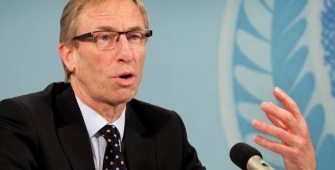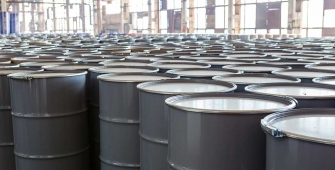InstaForex Gertrude
Active member
COLOMBIA: Colcap Trades Down As Tax Reform In The U.S. Weighs

Colcap, the main index of the Colombian Stock Exchange, traded down 0.42% at 1,440.31 points Tuesday, weighed by the perception that the tax reform in the United States would lure investors to the country, with a detrimental effect on emerging markets, according to Erika Baquero, an analyst at Alianza Valores.
Avianca shares ended stable after the company announced that it signed a code-share agreement with Air China. Grupo Energ?a Bogot? (GEB) (-0.72%) reported that the Ministry of Finance and Public Credit of Colombia, authorized an External Loan Agreement with a group of banks of up to US$ 749 million.
The shares of Canacol (+0.40%), and ?xito (+0.24%) are rising, while Cemex (-2.55%), ISA (-1.43%), Sura (-1.21%), and Ecopetrol (-0.56%) are falling.
The locally traded U.S. dollar closed at 2,996.50 Colombian pesos, marking a 0.15% rise, due to the expectation of a rate hike by the United States Federal Reserve Bank in 2018. Daniel Escobar, an analyst at Alianza Valores, noted that the market expects three rate adjustments in 2018, from two, which would have favored the greenback rebound.
News are provided byInstaForex.

Colcap, the main index of the Colombian Stock Exchange, traded down 0.42% at 1,440.31 points Tuesday, weighed by the perception that the tax reform in the United States would lure investors to the country, with a detrimental effect on emerging markets, according to Erika Baquero, an analyst at Alianza Valores.
Avianca shares ended stable after the company announced that it signed a code-share agreement with Air China. Grupo Energ?a Bogot? (GEB) (-0.72%) reported that the Ministry of Finance and Public Credit of Colombia, authorized an External Loan Agreement with a group of banks of up to US$ 749 million.
The shares of Canacol (+0.40%), and ?xito (+0.24%) are rising, while Cemex (-2.55%), ISA (-1.43%), Sura (-1.21%), and Ecopetrol (-0.56%) are falling.
The locally traded U.S. dollar closed at 2,996.50 Colombian pesos, marking a 0.15% rise, due to the expectation of a rate hike by the United States Federal Reserve Bank in 2018. Daniel Escobar, an analyst at Alianza Valores, noted that the market expects three rate adjustments in 2018, from two, which would have favored the greenback rebound.
News are provided byInstaForex.











